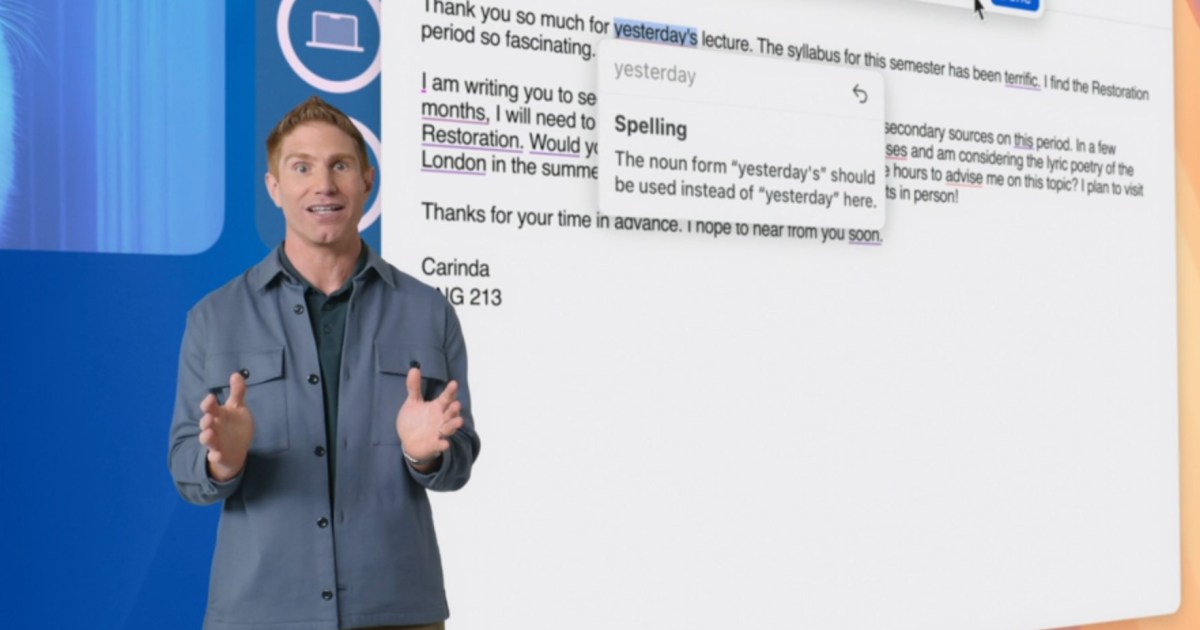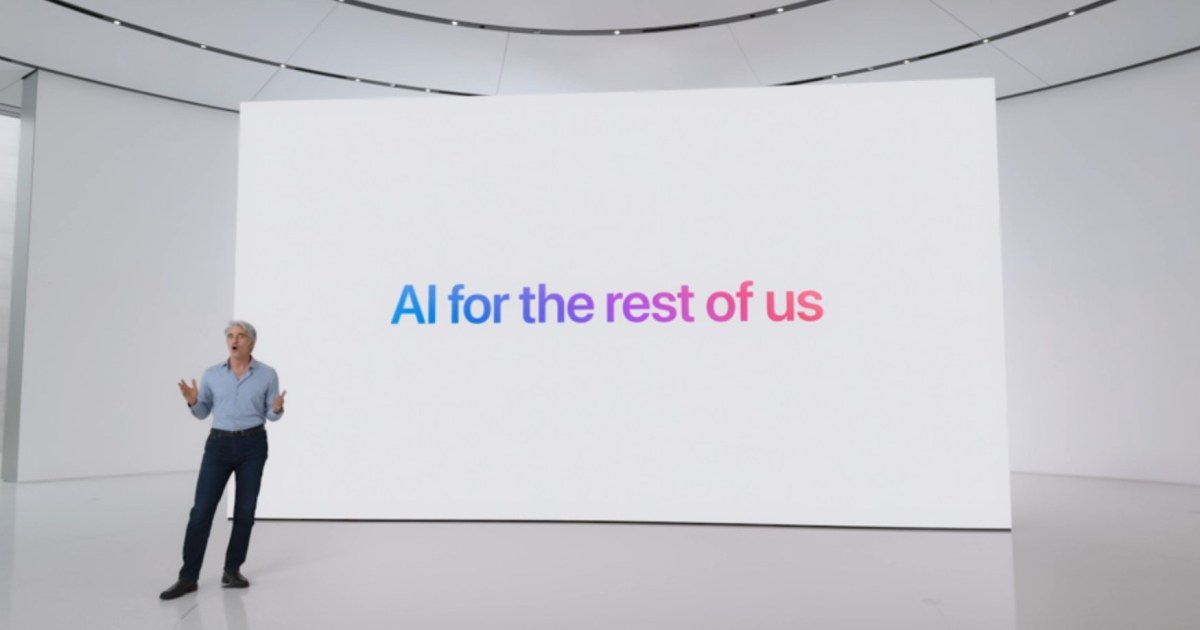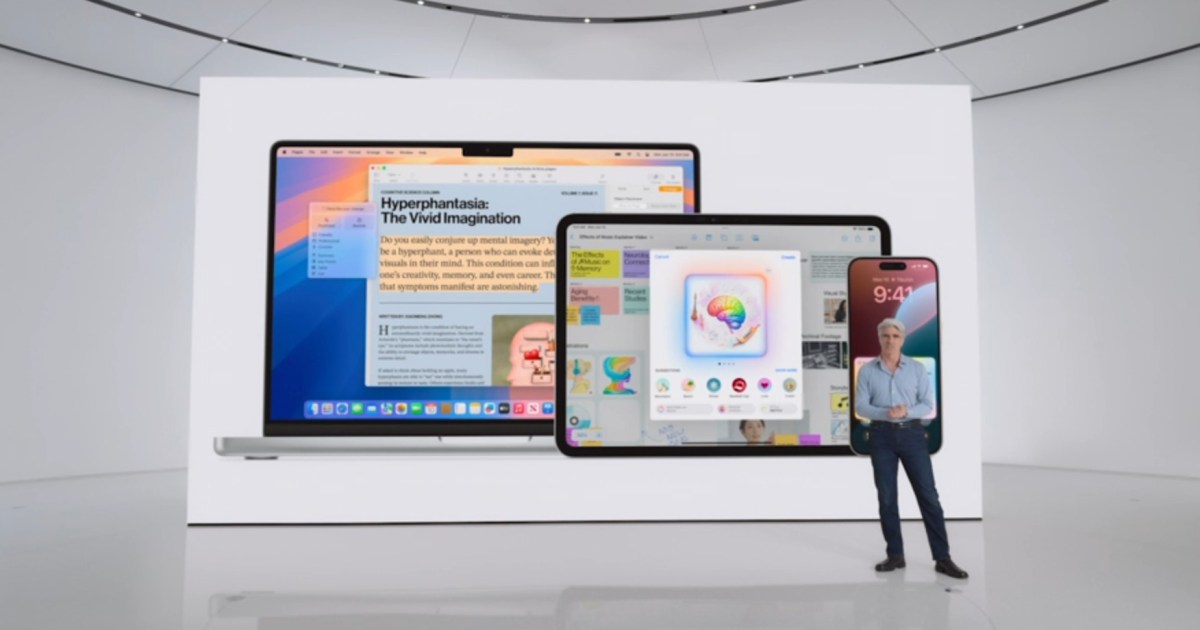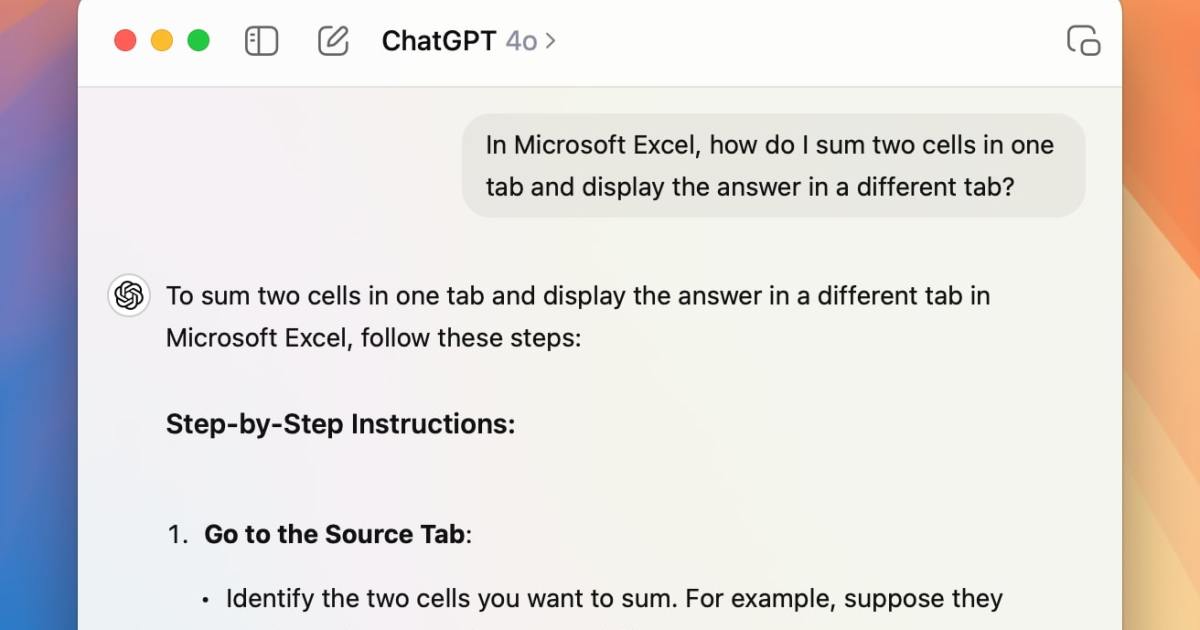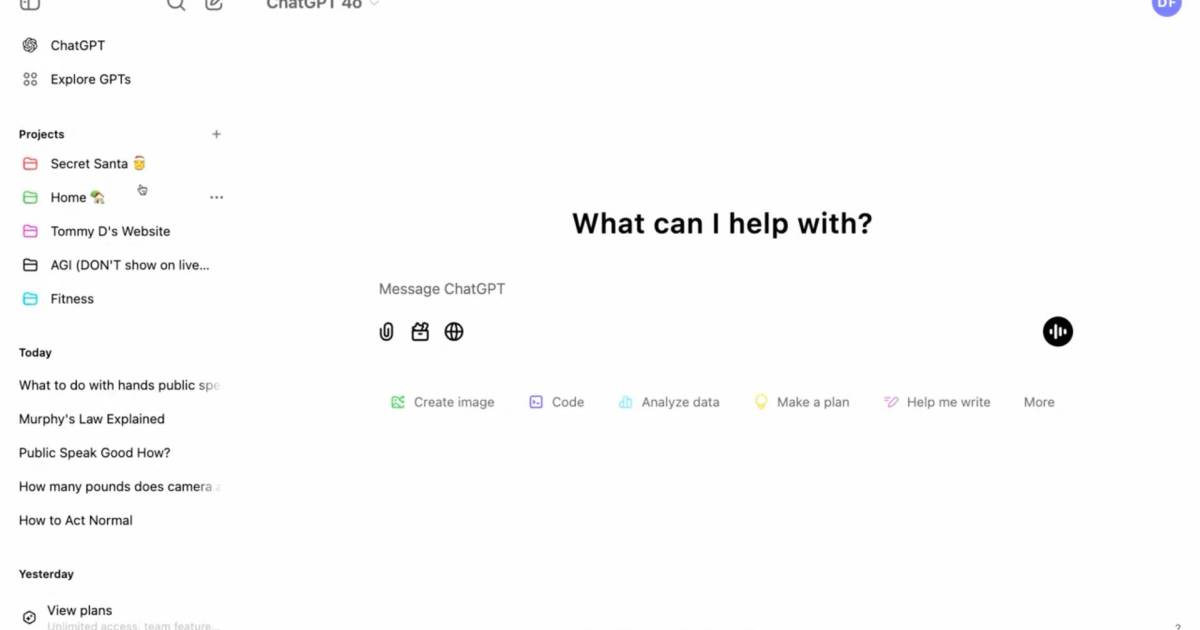Apple unveiled Apple Intelligence at WWDC 2024 as “AI for the rest of us,” a clear jab at Microsoft’s Copilot+ PCs. While Microsoft boasts a strong partnership with OpenAI and vast data centers, Apple’s approach to AI integration offers compelling advantages that position it to win the consumer AI race. Even before experiencing Apple Intelligence firsthand, its potential to surpass Copilot+ is evident.
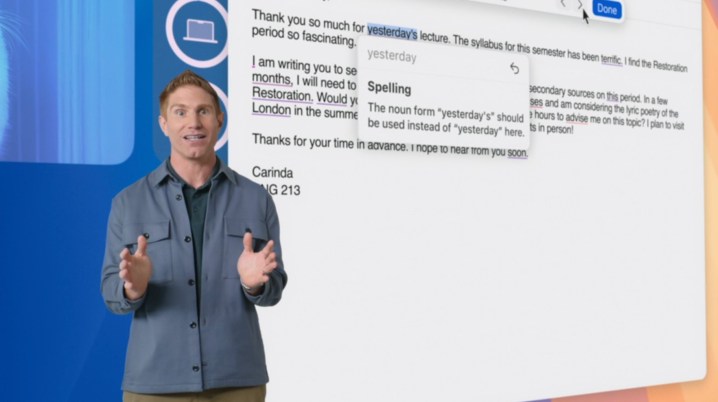 Apple presenting Apple Intelligence features at WWDC 2024.
Apple presenting Apple Intelligence features at WWDC 2024.
Accessibility and Hardware Requirements: A Key Differentiator
A significant advantage of Apple Intelligence is its accessibility. Unlike Copilot+, which necessitates purchasing a new, expensive PC with specific hardware requirements, Apple Intelligence leverages the existing AI capabilities of M-series chips and the A17 Bionic. This means users can access these powerful AI features on their current Macs, iPhones, and iPads via a free system update. This eliminates the financial barrier to entry, making AI features readily available to a much broader user base.
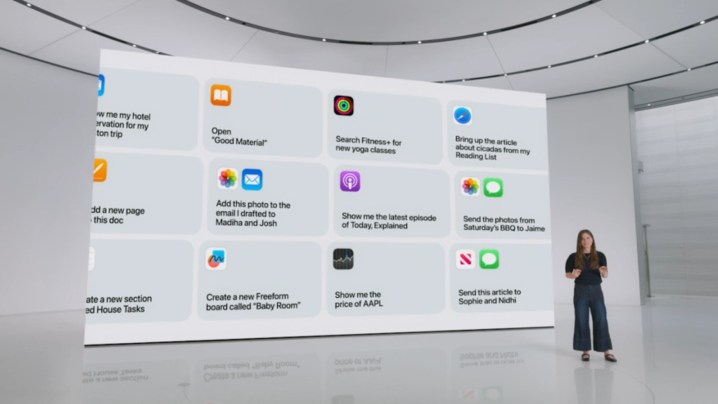 Siri Apple Intelligence examples.
Siri Apple Intelligence examples.
Apple’s strategy focuses on integrating AI seamlessly into the existing ecosystem, rather than requiring users to invest in new, unproven hardware. This approach encourages user engagement with AI features without the risk of financial commitment.
 The new Surface Pro on a table.
The new Surface Pro on a table.
Ecosystem Integration: A Synergistic Approach
Beyond its free availability, Apple Intelligence seamlessly integrates across Macs, iPhones, and iPads, creating a powerful, interconnected AI ecosystem. Copilot+, in contrast, is confined to specific laptops, limiting its functionality and reach. Apple’s established ecosystem allows users to interact with AI features across their devices, fostering a more fluid and dynamic workflow.
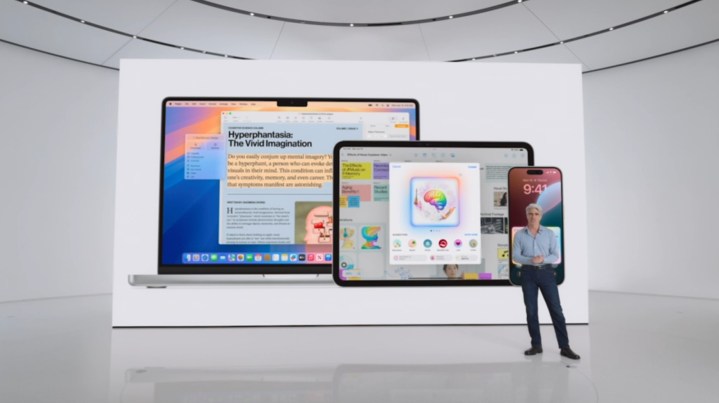 Apple showing the different devices that Apple Intelligence works on.
Apple showing the different devices that Apple Intelligence works on.
This cross-device functionality allows for tasks like capturing photos on an iPhone, searching them using AI on a Mac, and editing them on an iPad. This synergistic approach demonstrates the true potential of AI integration within a unified ecosystem.
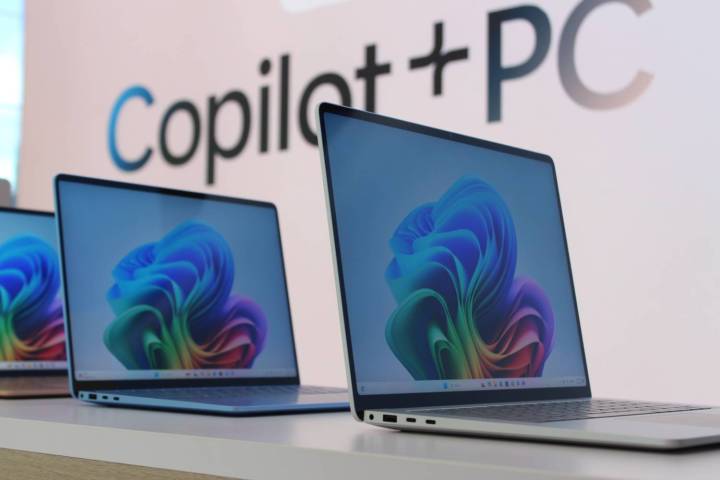 The Surface Laptop shown in front of a Copilot+ sign.
The Surface Laptop shown in front of a Copilot+ sign.
Feature Comparison: System-Wide AI vs. Isolated Applications
While both Apple Intelligence and Copilot+ offer similar features like text editing and image generation, Apple’s system-wide integration provides a significant advantage. Apple Intelligence’s writing features, for example, function automatically across all Apple and third-party apps, streamlining the writing process. Siri also offers deeper app integration, including the ability to transfer information seamlessly between devices and apps.
 A screenshot of the Recall feature in Windows.
A screenshot of the Recall feature in Windows.
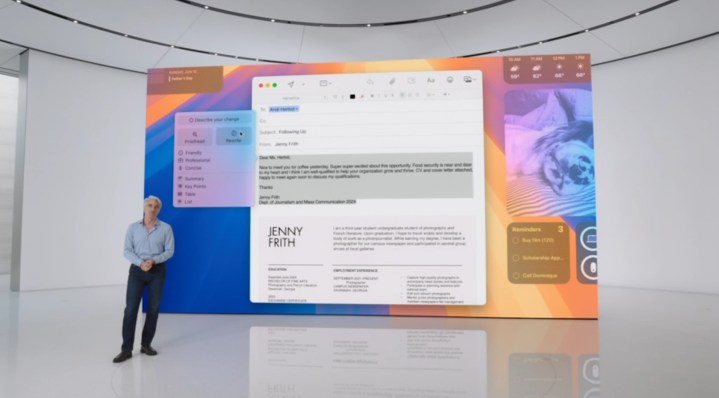 Apple showing writing features in Apple Intelligence.
Apple showing writing features in Apple Intelligence.
Furthermore, Apple Intelligence boasts additional features such as Genmoji for creating custom emojis and Image Wand for transforming sketches into AI-generated images. This broader feature set, combined with system-wide accessibility, further solidifies Apple’s lead.
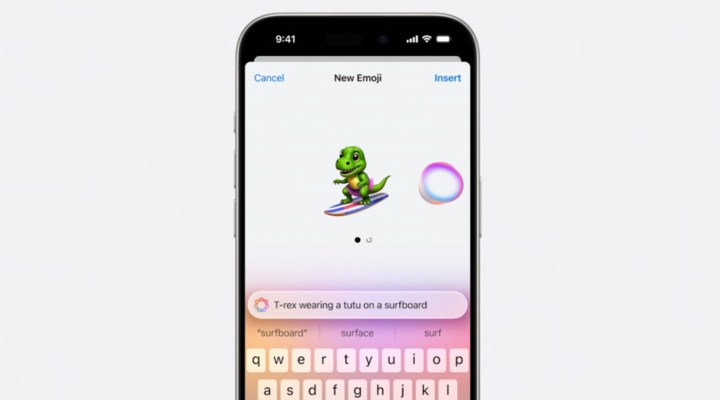 Genmoji on an iPhone.
Genmoji on an iPhone.
Privacy: A Critical Consideration
A crucial differentiator between Apple Intelligence and Copilot+ is the approach to privacy. Apple emphasizes on-device processing, minimizing reliance on cloud-based processing and mitigating privacy concerns. While both companies claim to prioritize privacy, Apple’s historical commitment to data security instills greater user confidence.
 Apple talking about privacy with AI apps.
Apple talking about privacy with AI apps.
Microsoft’s past actions, such as promoting Edge over Chrome and intrusive advertising practices, have eroded user trust. This contrast in user perception gives Apple a significant edge in the privacy-conscious AI landscape.
 A Microsoft logo displayed at an event.
A Microsoft logo displayed at an event.
Conclusion: Apple’s Winning Strategy
Apple’s “AI for the rest of us” approach emphasizes seamless integration, accessibility, and user privacy. By leveraging existing hardware, integrating across its ecosystem, and prioritizing user experience, Apple Intelligence offers a compelling alternative to Microsoft’s Copilot+. While Microsoft holds a strong position in the enterprise AI market, Apple’s consumer-focused strategy positions it to win the race for mainstream AI adoption.
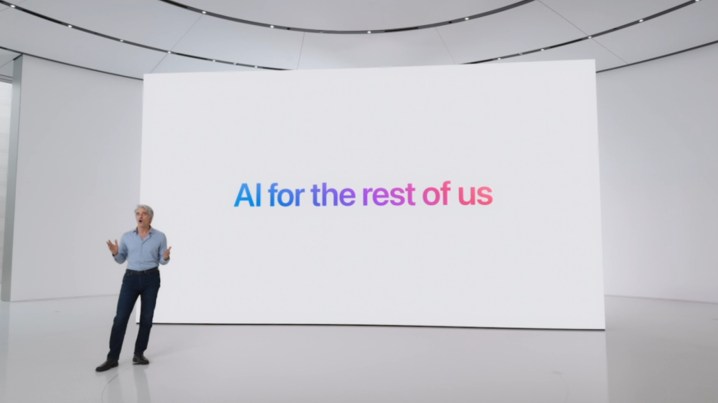 An Apple executive giving a presentation at WWDC 2024.
An Apple executive giving a presentation at WWDC 2024.
Apple’s focus on enhancing user experience through readily available, privacy-centric AI features makes it a clear frontrunner in the consumer AI space.



